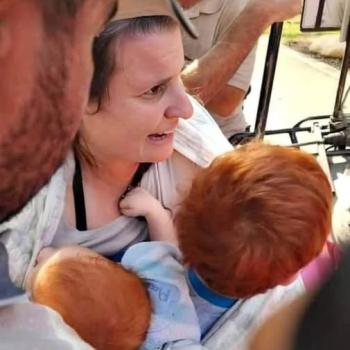Basic moral questions are involved in the continuing abuse of the environment. Humankind is so interconnected with the earth that environmental irresponsibility quickly touches human rights and human life. Columbian missionary Sean McDonagh says:
Any action which misuses the resources of the Earth, especially if it is destructive of life-forms and does not allow the emergent creative process of the Earth to continue in an integral and effective manner, is intrinsically evil. The reason is simple: it affects this generation and all future generation and life-forms on Earth in a way that involves irreversible damage to life-systems (To Care for the Earth: A Call to a New Theology, 196).
The world's ecological crisis has been widely noted, and some initial steps have been taken to solve it. As the Industrial Age draws to a close, ours is the generation that has to begin shifting gears and moving toward a new style of living if there is to be a civilization of any quality left for future generations. Since action flows from thinking and from willing, the first step should be a renewal of our perceptions and a conversion of heart. The first step towards the well-being of our planet is not political but spiritual.
A Change of Attitude
The deeper causes of the environmental problems we face lie in the human heart: the pathologies of fear, greed, selfishness, arrogance. Eco-spirituality knows there will be no healing of the earth unless there is a healing and conversion of hearts.
Our conversion-process may be slow and lengthy, but a good beginning can be made on the level of perception. Self-centered, myopic perception needs to be enlarged in order to see the cumulative, long-term effects of environmental abuse. For example, the effect of one internal-combustion automobile on the quality of the atmosphere is negligible; the effect of millions of cars driving millions of miles is painfully noticeable.
As perception broadens outward from one's own immediate concerns, one can see the needs of the local or regional community. Beyond that context, one can begin to perceive the needs of the total living and non-living world community. As our perception shifts from the small picture to the total, global picture, we open ourselves to a new possibility. Our goal is to forge a lifestyle that is sustainable within the global community, where all have a right to live from the limited resources of the earth.
Affluent individuals and countries may have to accept a simplified lifestyle either voluntarily or reluctantly and by necessity. "The evil," as Pope John Paul points out in his encyclical On Social Concern, "does not consist in 'having' as such ... The moral and ecological problems arise when the 'having' of a few can be to the detriment of the 'being' of many others" (No. 31).
The ideal would be to utilize appropriate technologies that are more harmonious with the environment and based on renewable resources like wind or solar energy. Such technologies are in existence and have proven successful, though they are not always as cost-effective as the more wasteful technologies. Adopting them would be a major step toward a simplified lifestyle. Only a change of attitude can lead to a voluntary change of lifestyle.
From Self to Neighbor
One of the goals of eco-spirituality is to help transform human minds and hearts in the context of all their relationships, so as to bring people into creative harmony with the will of God in all these relationships. By this date in the history of spirituality we have come to see the need for a healing transformation in our relationship both with God and with our neighbor, especially the poor. We have also come to see the need for a transformed relationship with our own bodies and psyches so that we may have a true appreciation of our own personal humanity in its dignity and beauty as the image of God.
The integration of bodily reality into the spiritual life was a major advance, but we have already moved beyond that stage and have come to recognize a social dimension of spirituality. We encounter God through interactions with our neighbor on the level of friendship and faith-sharing.
As our perception broadens, our notion of neighbor expands. To lend a helping hand to our neighbor also means to care for endangered species of animals, birds, and plants. To live at peace with our neighbor means to function in harmony with the primary processes of the planet -- the atmosphere, the water, the land.
From Neighbor to Cosmos
The spreading ecological crisis demands that we take responsibility for the house we live in, which is this planet where we live side by side with all our neighbors -- all other living and non-living creatures. From the matrix of this material cosmos human beings emerged, according to God's plan, many millions of years ago.




